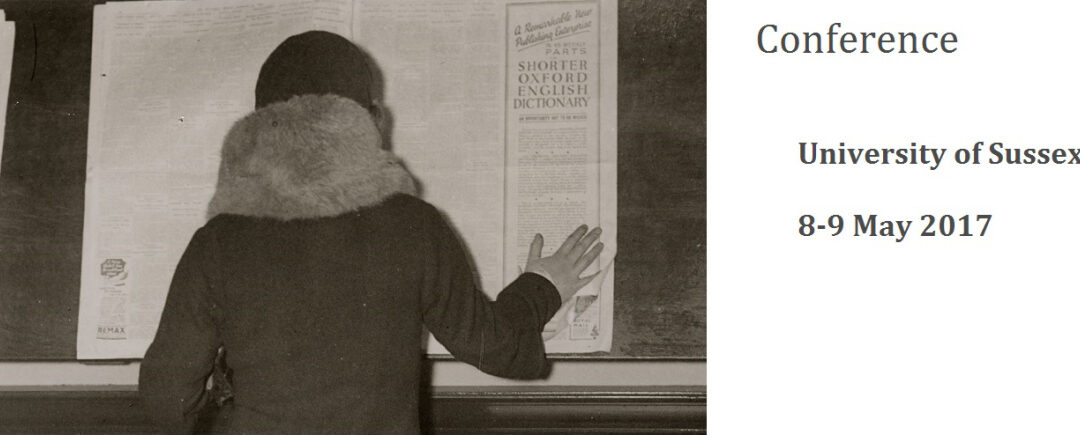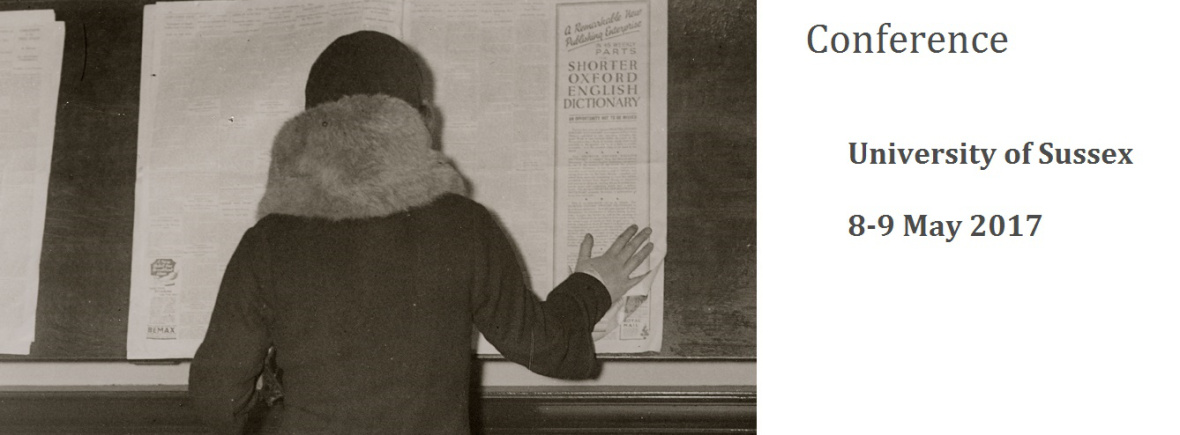‘What is important now is to recover our senses. We must learn to see more, to hear more, to feel more. […] The function of criticism should be to show how it is what it is, even that it is what it is, rather than to show what it means.’
— Susan Sontag, ‘Against Interpretation’ [1964]
‘What would a less strong theory look like – one that leaves room for the aleatory and the unexpected, the chancy and the contingent?’
— Rita Felski, The Limits of Critique [2015]
Keynote speakers:
Professor Steven Connor (Cambridge). ‘Public Reading and Reading in Public’
Dr Clare Birchall (King’s College London). TBC
The way that we read has been a source of much contention in contemporary evaluations of theory in the arts and humanities. A number of theorists – Bruno Latour, Steven Connor, Rita Felski and Franco Moretti among them — have placed critical reading under intense scrutiny. Critique has become, in Rita Felski’s words, our ‘shield’, enabling us to resist alternative modes of reading. Is it the case that locating our point of critique has come at the cost of our critical ingenuity? If so, what comes after critique? Moreover, does renewed consideration of the materiality, or ‘thingness’, of the objects we study compel us to read differently? Responses to these post-critical conditions have emerged across institutional disciplines, and have included the development of approaches such as Surface Reading, Distant Reading, Big Data, Postcritical Reading, and reading ‘against the grain’. These new approaches have often proved contentious, sparking rebukes which have centred on allegations of their dangerously apolitical positions. In the wake of recent political upheavals, are these new modes of reading capable of meeting the interpretive challenges of our contemporary moment?
This conference proposes that we cannot understand the challenges and opportunities currently facing the arts and humanities without rethinking reading and its objects. In this period of critical uncertainty, in which theories of reading have been reinvigorated, ‘Reading and Its Objects’ endeavours to bring together scholars working across the arts and humanities who wish to engage with, and are at work on, emerging alternatives to critique. To that end, we invite papers which reflect on any number of media and focus on a range of time periods, but which bring their attention to bear on the act of critical reading, or engage with the uses of emergent reading practices in the context of the contemporary humanities.
This two-day conference is generously supported by the University of Sussex’s Researcher-Led Initiative (RLI) Fund, and the University of Sussex’s Centre for Creative and Critical Thought.
Paper topics might include, but are by no means limited to:
- Close reading and indeed any iteration of reading – slow, surface, reparative and paranoid, distant, postcritical, too-close, close but not deep, close reading at a distance and reading with the grain, for example.
- Suspicion and mastery
- Limits (the limits of reading; the limits of critique)
- Posthumanism and new materialisms
- Defences of critique
- The relationship between institutional modes of reading, and the reading public (including the relationship between HE policy, the ‘legitimation crisis’ and the critical narratives of the humanities)
- Transparency and its discontents
- Resistance and difficulty (i.e. disruptive potential of materiality)
- Critical heroism and critical martyrdom
- Mapping as a way of reading; cartography
- Reading and surprise
- Sociology of literature
Those interested in participating should submit an abstract of no more than 300 words, with a bio of 100 words. Please send to readinganditsobjects@gmail.com by 15th February.
Please feel free to contact the organisers with any questions at the above email address.
In due course more information, along with registration, will be made available on readinganditsobjects2017.wordpress.com.
Organisers: Charlotte Terrell, Byron James Heffer and Katherine Kruger


